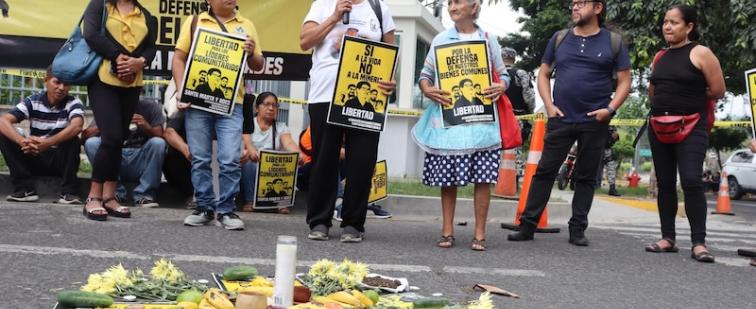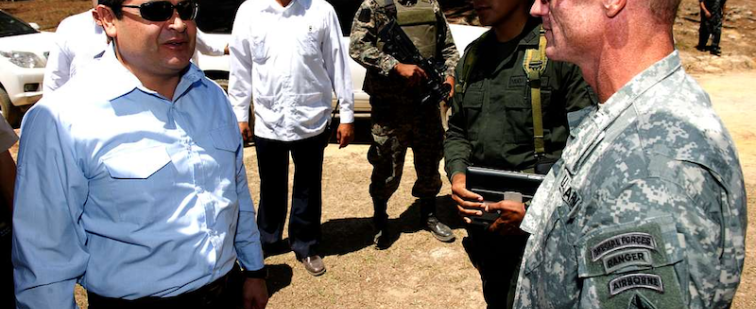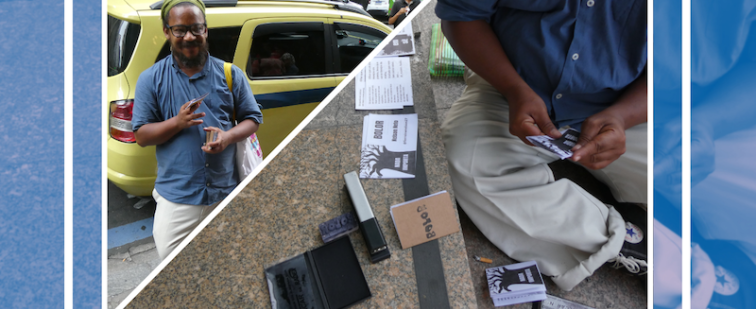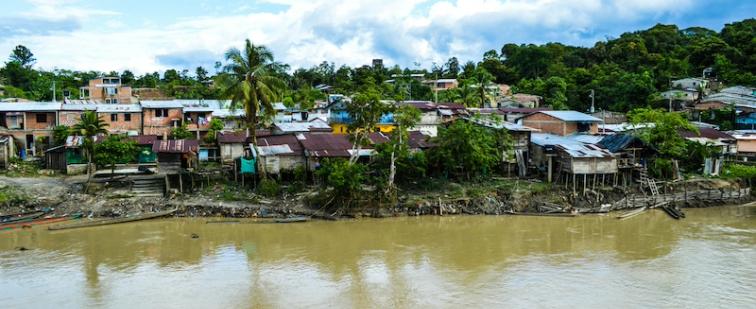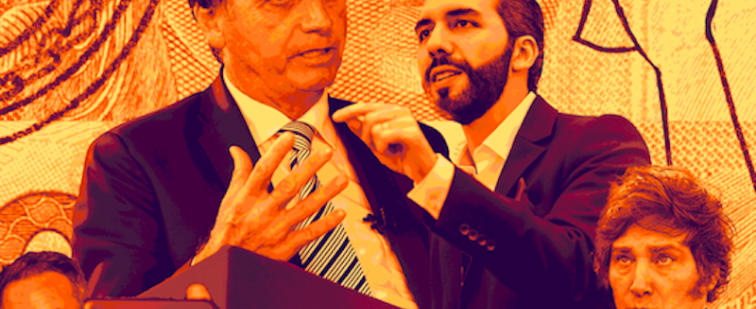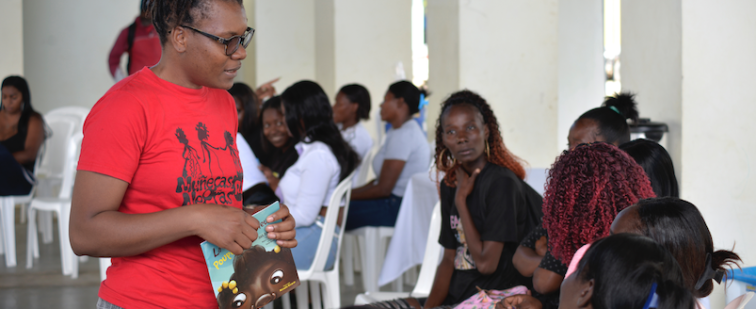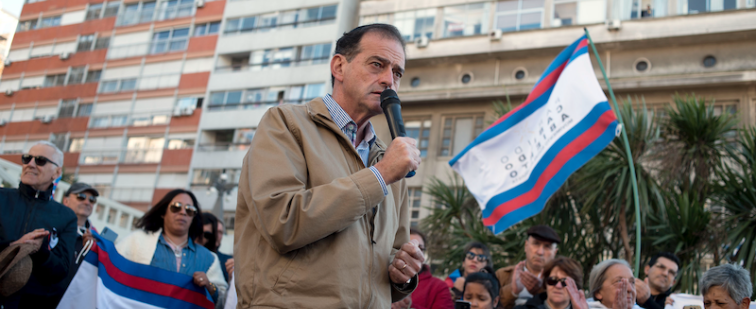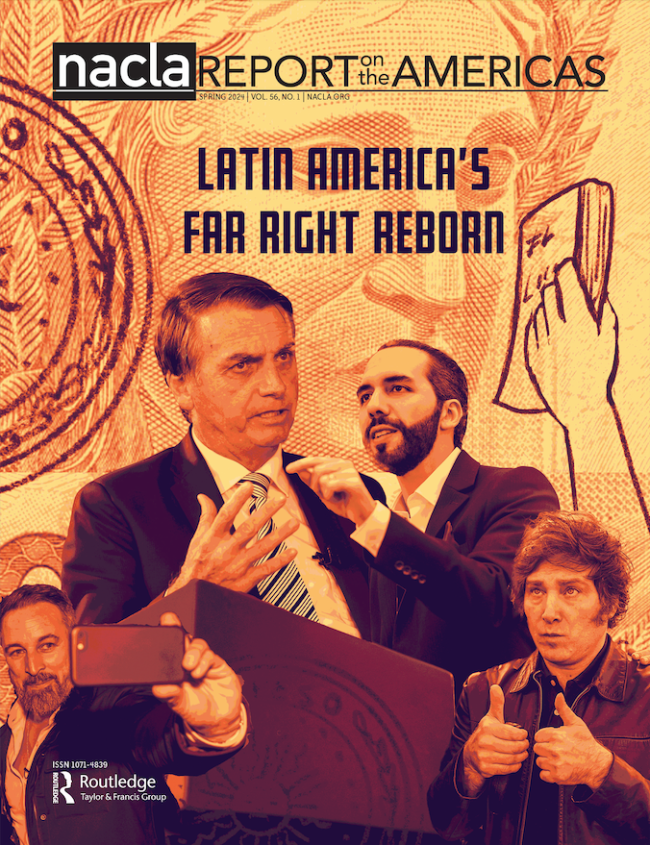Home
In March a high-octane U.S. delegation went to Mexico that included Secretary of State Hillary Clinton and several military, security, and intelligence officials to negotiate phase two of the Merida Initative, a multi-billion dollar U.S. military and police aid package to Mexico. Officials claim that this new phase will be a reformed version of the original, focusing less on military support and more on curbing drug demand in the United States. However, beneath the rhetoric, the military strategy continues to be the number one priority, as Mexican soldiers learn from U.S. military personnel counter-insurgency tactics used in Iraq and Afghanistan, "where the enemy lives among civilians."
On April 26, the New York University Coalition to Keep Coca-Cola Off Campus will launch its new campaign to ban all Coke’s products from the campus with a screening of the award-winning documentary The Coca-Cola Case. The campaign, like the movie, seeks to highlight Coca-Cola’s refusal to allow an independent investigation into the killing of eight members of a union, that represents workers at Coke’s bottling plants in Colombia, by paramilitary forces.
Imagine you live in a slow and sleepy village where the cow population rivals that of people and suddenly some 10,000 people from all parts of the planet descend upon it—bearing slogans. Welcome to Tiquipaya for the People's Summit on Climate Change. This repost from the Bolivia-based Democracy Center's blog brings together the on-the-ground reporting from Jim Shultz, Elizabeth Cooper, and Jessica Camille Aguirre, who dare to grapple with the huge questions raised at the summit this week.
Soon after the June coup in Honduras, the de facto government unleashed a vigorous PR campaign against ousted president Manuel Zelaya, accusing him of being involved in drug trafficking. This linking of Zelaya to drugs remained a prominent feature of the coup government’s propaganda during its seven-month reign, and offers an insight into the the many political uses of the drug war in the Americas, even to justify the overthrow of a democratically elected president.
Brazil’s former president Fernando Henrique Cardoso visited Cornell University on April 7 to give a lecture, talk to the press, and receive yet another academic award. The onetime Marxist sociologist, now the political leader of the centrist Brazilian Social Democratic Party (PSDB), and one of the North’s favorite neoliberal statesmen, Cardoso commands boundless respect in the international arena. He frequently airs his views in editorial pages and lecture podiums all over the world, but back in Brazil, Cardoso inspires rather less awe, which could have an impact on Brazil's upcoming election.
Proclaiming its lithium deposits to be a permanent reserve of the state, the Bolivian government last month authorized a new state company to undertake “the full chain of lithium production,” including “exploration, development, industrialization, and marketing.” At issue is the future of Bolivia’s vast Uyuni salt flats, the world’s largest untapped lithium reserve, holding at least 5.4 million tons—almost half the world’s known supply. Also at stake is a potentially significant source of wealth and an alternative development model that, if successful, could bring substantial benefits to Bolivia’s impoverished population.
On February 25, José Armando Palacios and José Alberto Vicente Chávez, along with their families, filed a lawsuit against the Coca-Cola Company in the New York State Supreme Court. The company is accused of allowing its bottling and processing plants in Guatemala to engage in a campaign of violence against the two men, both prominent union leaders. Though Coke claims the U.S. legal system is being manipulated, the prosecution maintains that Guatemala’s courts, rife with impunity, are incapable of delivering justice.
No other country in the world has more non-governmental organizations (NGOs) per capita as Haiti. After the January 12 earthquake these NGOs received the bulk of the global relief funds, while the Haitian government, regularly accused of corruption by the U.S. State Department, has remained marginalized in the recovery and rebuilding efforts. This leaves a country where unelected organizations, unaccountable to the Haitian people, are calling the shots and accused of profiting from the poverty they are entrusted to fight.
When Bolivia’s president, Evo Morales, was sworn in to a second term in January, he proclaimed Bolivia a plurinational state that would construct “communitarian socialism.” In an accompanying address, Vice President Álvaro Garcia Linera, envisioned a "socialist horizon" for Bolivia, characterized by “well-being, making the wealth communal, drawing on our heritage . . .” The process “will not be easy, it could take decades, even centuries, but it is clear that the social movements cannot achieve true power without implanting a socialist and communitarian horizon.”

